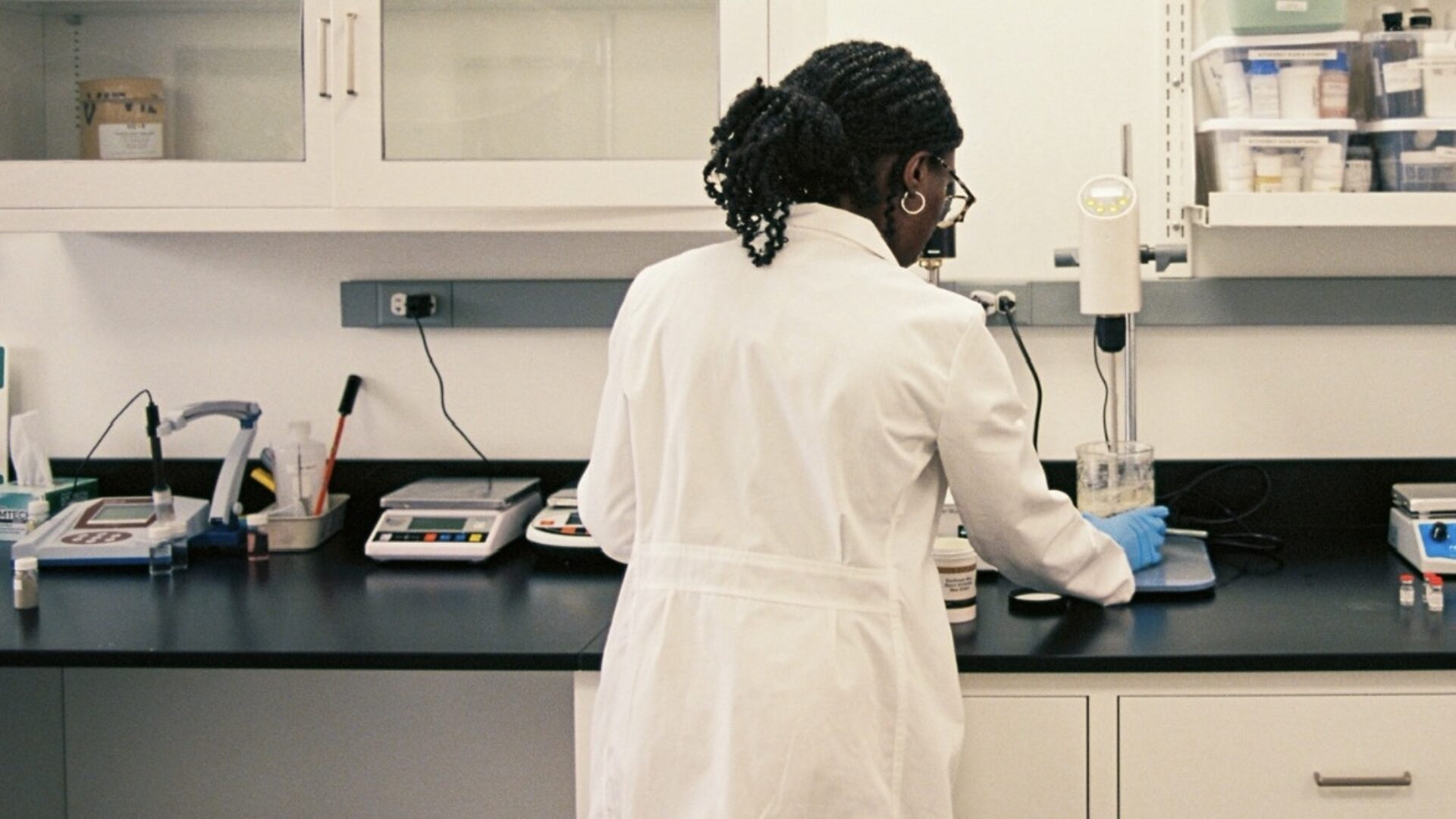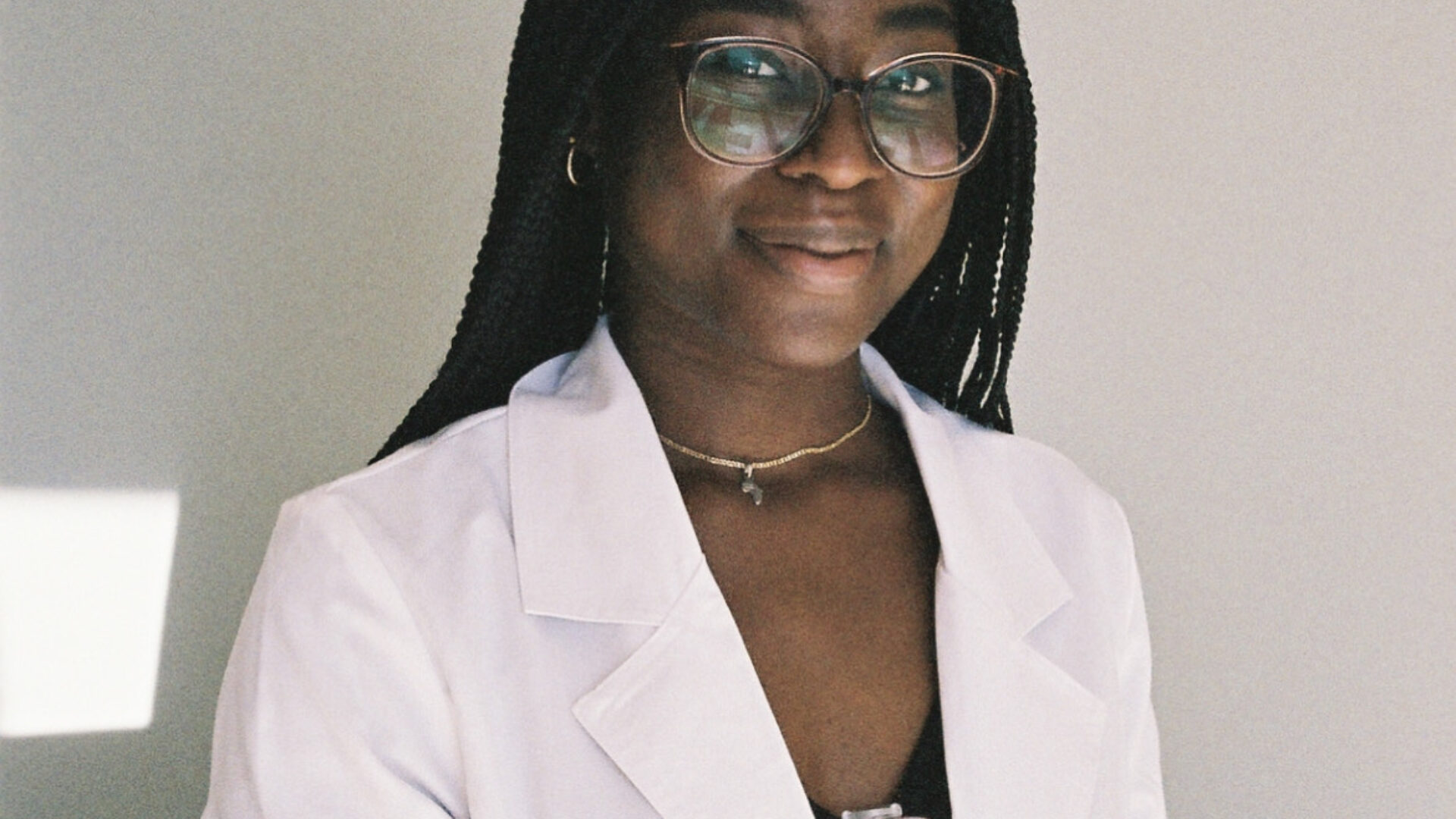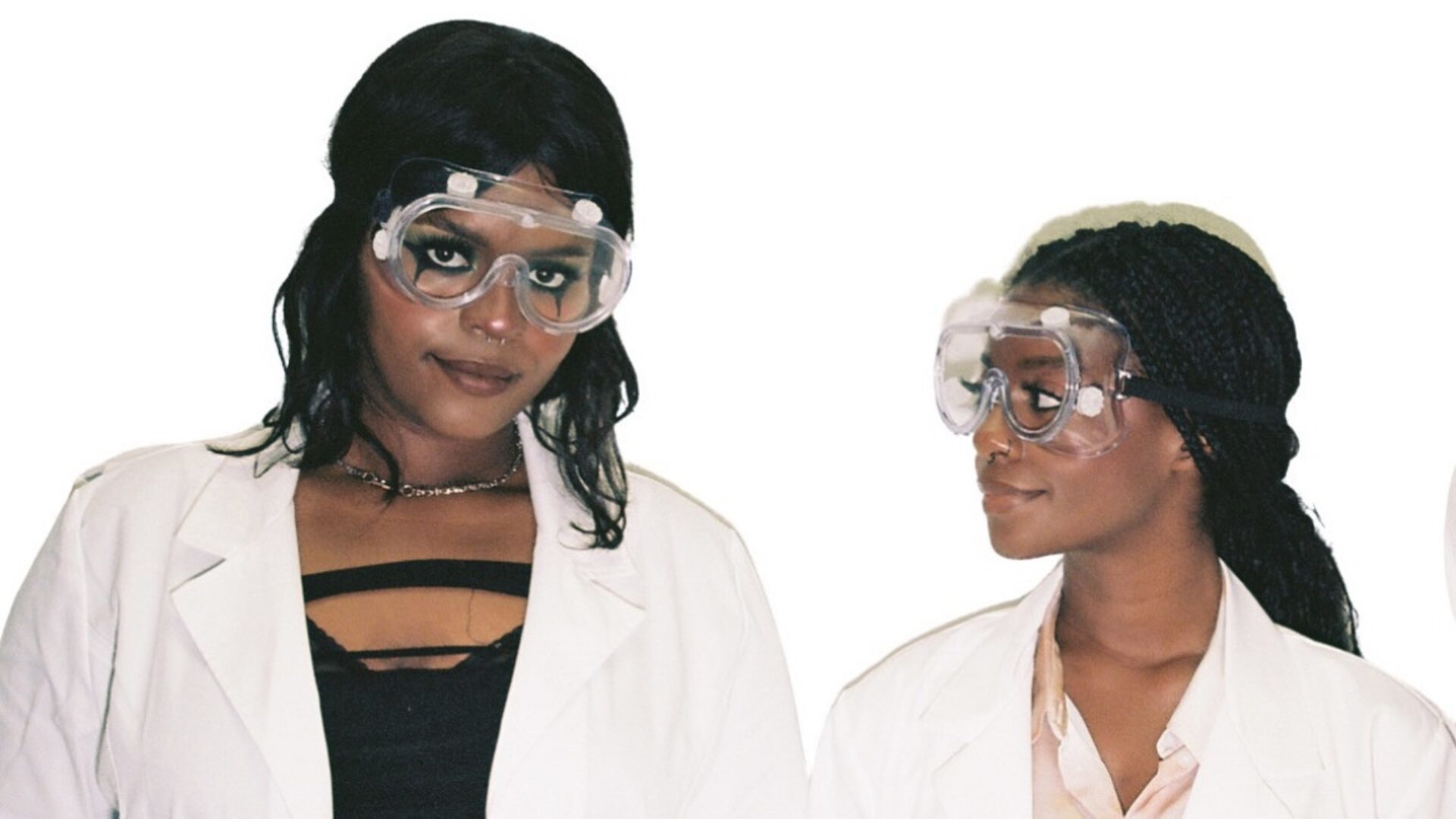
Beauty is an ever-growing business. With each visit to Sephora, there’s a new brand added to their “Brands To Watch” shelf. From skincare to makeup and hair care, there’s practically a product made for every hair type, complexion, and skin concern. Although TikTok can persuade you to obliviously buy a serum influencers “swear by” that’ll clear your skin quicker, or a moisturizer that retains hydration for many hours, it’s vital to pay attention to the formulaic label that often goes unnoticed.
Sure, a product will contain jojoba oil, AHA’s, BHA’s, or any other user-friendly ingredient that’s widely popularized, but what about the rest of the list that features hard to read chemicals? What exactly is their role, and how will it affect Black skin? That’s where Sula Labs comes in.
Inspired by Toni Morrison’s novel Sula, the laboratory founded by Northeastern University graduate AJ Addae had always been a passion project of hers after years of studying in the cosmetic field, specifically for sunscreen. After graduation, Addae landed a job as a clinical researcher and formulation chemist. However, her inability to be recognized by the company and the inexcusable deprioritization of Black skin prompted her to embark on her own, dedicating her lab to Black-owned beauty.

“It is quite rare to see people that looked like me at the time,” Addae explains to GU. “I felt that in order for me to really make an impact, that doesn’t necessarily just need to be made at the marketing level, but also at the research and development level.”
Sula Labs was born after acquiring a $5,000 grant, to aid beauty brands in identifying the needs of Black skin and cultivating effective chemicals to provide the safest formula for consumers. Divided into three components: formulation, testing, and custom ingredients, Sula Labs is responsible for developing the statistics to back a product such as “boosts 30% hydration” or “59% of users developed clearer skin,” as well as foster and enhance stand-out ingredients like a niacinamide or collagen. As we’re discussing ingredients, Addae reveals bakuchiol has become a top chemical for skincare. Although the biotech-synthesized ingredient offers similar effects to retinol, they aren’t structurally identical, kicking off a growing trend of utilizing new-age ingredients masking as previously trending ones. Vitamin C, peptides and hyperpigmentation-related products have also spiked in trend and usage.
“75% of our inquiries that come to Sula Labs all deal with hyperpigmentation,” confirms Addae. “There are tons of hyperpigmentation products on the market, but brands are still seeing a whitespace in how those ingredients are delivered, and the efficacy that really is seen with darker skin tones.”
As Black beauty continues to evolve and increase, concerns relating to Black complexions still need to be addressed and taken into account. Stereotypical sayings such as “Black don’t crack” or “Black people don’t need sunscreen” are both harmful and far from the truth. Melanin absorbs UV radiation for darker tones much more than others, leading to sun damage and skin cancer which affect the aging process. An interesting find from Sula Labs is the difference within the PH balance of Black skin, which means Black tones are more prone to be acidic as well as generate tulle transepidermal water loss, “We get ashy, right, and the reason is that we can hold a little bit less water in our skin,” Addae reveals. “There’s something called tulle transepidermal water loss, and it’s the potential for water to evaporate out of the surface of your skin. That happens a lot quicker for us in some cases, and because of that, we have to put on more lotion to hold the moisture and seal it into our skin.”

With vitamin C playing a critical factor in clear skin, we have to wonder if fruits are actually playing a role in reversing skin concerns or just adding a sweet fragrance to them. Rihanna’s Fenty Skin brand relies heavily on Barbados fruits like cherry and Kalahari melon. Ayesha Curry dove into her Jamaican roots, formulating passion fruit and soursop extract into her products. According to Addae, while beauty is more marketing-led than science-led, incorporating fruits bring in an element of efficiency and a story for Black-owned brands particularly. Vitamins A, B, and C are all found within botanicals rooted in oral tradition, which adds a legacy factor.
“There’s a reason why shea butter still has a huge stake. It’s just all about harnessing the right ingredient levels and stability in the product as well,” Addae suggests. “I think it’s really important to bring a story, and I call them story ingredients, but they’re much deeper than that. That’s essentially where you grab the consumer at the end of the day and it’s not just about making sales, it’s about making them feel seen, and I think black beauty does really, really well.”
Sula Labs aims to bring chemistry transparency to the forefront for both brands and consumers. The small team based in California continues to garner clientele from all areas of beauty to ensure your regimen is tried and true, but most of all, safe to use. As the lab gears up for 2024, its goal is to expand its patent formulas and become the first laboratory to publish papers that dive into the morphological findings of Black complexions.
“The power is in the hands of the consumer. It speaks worlds that 48% of African Americans say ‘we don’t see skincare products that meet our needs.’ While there are a lot of products being made, there’s not a lot being made with consumers in mind, making sales is one thing but really listening to consumers is where you get dollars,” says Addae.
To learn more about Sula Labs, visit online.